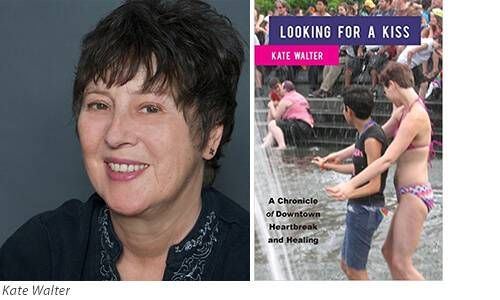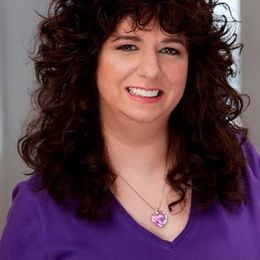The Financial Pitfalls of Domestic Partnerships
The 'Looking for a Kiss' author on the benefits of gay marriage
When Kate Walter’s partner “Slim” broke up with her after 26 years, she was devastated — not only emotionally, but also financially.
The gay couple had filed as domestic partners in New York City. And even though Walter was listed as a beneficiary on all of her partner’s accounts, she didn’t have any financial recourse when the relationship ended. Walter, a writer and teacher, found herself with no claim on the nest egg she had helped her partner build for all those years. She was 57 years old, heartbroken and broke.
Eventually, Walter recovered from the trauma. She secured a job with a pension and even began dating. Her new memoir, Looking for a Kiss: A Chronicle of Downtown Heartbreak and Healing, chronicles that journey. Walter recently talked to Next Avenue about the lessons she learned, what she hoped to accomplish by writing about them and the importance of legalizing gay marriage:
Before gay marriage was legal, was there any paperwork you could have filed to protect yourself financially?
Kate Walter: I was listed as the beneficiary on all of her accounts, so that if she died, I would get all the money. What happened was there was no provision [if we broke up]. My name was listed as “beneficiary,” but not being wed, I had no legal claim unless she died.
It’s not one of the things everyone thinks about.
No, because you don’t expect to break up. She was telling me not to worry because I made less money. She said she would take care of us when we got older, so I never really worried that much about not having a lot of savings. I was naïve, I guess, and in love. Had we been married she just couldn’t have pulled that off.
Your story shows one reason it was important for gay marriage to be recognized on the federal level. What are some others?
Social Security is one reason. There were couples who were married in Canada or in states [that recognized gay marriage]. Until it became a federal thing, you were not entitled to your partner’s Social Security. That’s pretty significant. There’s hundreds of rights you get being married.

How were you able to recover financially?
I was lucky in the sense that I was already an adjunct at a community college. And I was lucky in that I got the job full-time in 2009. So two-and-a-half years after the break-up, I was offered a full-time job — I already had my foot in the door, and there was an opening for someone who had my qualifications, and I got it. That was an enormous relief because now I’ll have a decent pension. If I hadn’t gotten that, I don’t know what I’d be doing really.
In terms of your emotional devastation, how were you able to get through that and the anger to get through to the other side?
The heartbreak was really hard to deal with. It took a long time. It took years. It took therapy, a lot of therapy.
Writing was really cathartic. I mean writing the book really, really helped me. I definitely think writing is like a healing tool.
Then I joined this gay-positive church. It’s not a gay church, but it has a lot of gay people in it.
Going to spiritual workshops, getting out and doing things, going to readings, going to openings, going to social events — even if I was forcing myself.
A lot of yoga.
Are you proud of how you got through?
I’m really proud of myself. Other than my father dying, this was the most devastating thing that ever happened to me.
What do you want people to get from your book?
I want people to get that you can go through a horrible experience emotionally and financially, and you can come out on the other side. You can come out happy, maybe even a better person. I feel like I’m probably more in touch with myself now than I’ve ever been now that I’m out of the relationship.
I can see that there were a lot of negative things in it. Obviously there were a lot of positives. There were a lot of negative things, too, that really kept me from fully being who I am.


